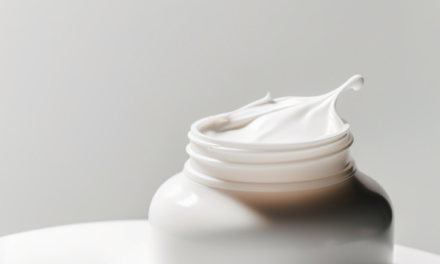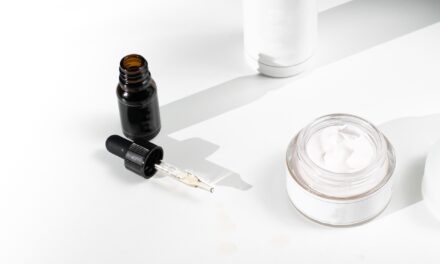Skin Types: Should You Bother?
If you are into skincare, you must have heard about skin types. They are everywhere in the skincare world: on products (“for oily”, “dry skin”), on various online quizzes (“find out your skin type”) and in articles in beauty magazines. Are these classifications helpful for choosing skincare that is right for you? Unfortunately, rather not. But as with everything in a complicated skincare world, there are nuances. We are dealing with a complex biological organ after all 😉. Let’s dig in.

Why are skin types good for marketing?
Creating different variations of the same product is a well-known and effective marketing tool. Here is how it works. Imagine I am selling a shampoo and my marketing line is: “This is a great shampoo to wash hair”. If you have hair and sometimes wash it, you see why my product can be useful.
Now, imagine I add a few different colorants to my shampoo and vary the packaging a little. For example, I call the blue shampoo “Moisturizing shampoo for dry hair”, and the purple one “Volumizing shampoo for thin hair”.
If you actually concerned that your hair isn’t soft enough, my “shampoo for dry hair” also seems to be a more perfect fit for you than my generic shampoo.
Also, now I am no longer selling you a product that helps to get your hair clean. I am speaking to a particular dissatisfaction you might have with your hair. I am selling you softer, or more voluminous hair. In reality it is the same shampoo, but the promise is so much more attractive. You are likely to be willing to pay more for it than for simply a “great shampoo to wash hair”.
Does it mean that all shampoo sellers like me only vary the colourants and the selling lines? No, some of them might change the formulation to actually help add some volume to the hair or at least to justify the claim. But does it mean that all shampoos “for thin hair” have anything special in the formulation? Also no. The point is: if I am selling something, even if I do not change anything substantial in the product, it still makes sense for me to “target” it for a particular type. I sell more this way. And it is true for shampoos, skin moisturizers and bottled drinks.
Learn more about the top actives for different skin goals, effective concentrations and how to include them into your skincare regimen
Why can “skin type” marketing mess up your skincare game?
If you are concerned that your skin is too oily, you are more likely to buy skincare marketed for “oily skin”. You might feel that these products promise to help reduce your skin oiliness. In reality, most of them don’t. They are only saying “I hear you! You have an oily skin issue! I am created for people like you!”.
Some products might contain particular actives and formulations that can help reduce skin oiliness (or whatever other skin concern you have). Others are only marketed “for oily skin”, and have a pretty much the same formulation as the “dry skin” version, with a slight variation in texture and packaging. There is no way for you to tell the difference unless you dive into the product details.
It gets worse when skincare products are designed to make the consumer feel they address your skin issue even though they don’t. Take products for blemish-prone skin. If you suffer with acne and have an oily, you might subconsciously feel that your skin is “dirty” and isn’t “fresh”. A product with a strong fresh scent and a cooling, drying sensation might make you feel like it is helping your skin problem. Hence you have a wide range of products marketed for acne-prone skin with menthol, peppermint and alcohol – even though these ingredients are harmful if you have acne.
So what can you do if you are looking for skincare that actually works?
- Be aware that skin type differentiation can be only a marketing trick. If you know how exactly someone might “fool” you, you are more prepared to spot the lie.
- Learn what actives can actually address your skin concern. Look for products that contain them in a proper concentration. Learn how exactly you need to apply them to get results: how often, for how long and in what types of products (for example, most actives do not work in cleansers). It is work, but your skin is worth it.
- For the rest of your skincare, feel free to ignore the “skin type” marketing. It can still be helpful if you have a preference for a particular texture or cosmetic effect. For example, products “for dry skin” tend to have heavier textures. Sunscreens “for oily skin” often have a less shiny finish. But this is it: it is just about the texture, finish or an immediate feeling on the skin. It is not about the long-term skincare performance.
Are there “real” skin types?
Yes, of course some people’s skin produces more oil than others’. Some people’s skin is more prone to irritations. Some people’s skin is more likely to form scars or pigmentation spots. But it does not change the basics of skincare. All skin types benefit from gentle cleansing, moisturization and sunscreen. These products do not need to be different for any person – unless you have a particular texture or finish preference, or have an individual sensitivity to an ingredient.
If you are using product beyond the basics, it is probably because you have something specific you’d like to achieve. For example, prevent signs of aging, reduce acne, clogged pores or oiliness, strengthen the skin barrier (reduce sensitivity or dryness), fade or prevent pigmentation. If you are concerned about any of these issues, it does not matter what biological skin type you have. The fact that an issue bothers you is enough to “justify” looking for skincare to address it. When you are looking for addressing a specific skin issue, look for the right actives and a good basic skincare regimen. Do not make decisions based on the “skin type’ marketing.
And the other way around. If your skin is oilier than the skin of some other people, it doesn’t make skincare “for oily skin” right for you. Who said that a naturally glowy skin isn’t a look to aspire to?
Ok, so how about those biological skin types? In established dermatology, skin is classified one dimension at a time.
For example, based on a natural skin tone. Darker skin tones are less likely to get skin cancer and have a more resilient skin barrier, but more likely to develop pigmentation issues after skincare procedures. So a dermatologist is more likely to refer you to a skin cancer screening if your skin is fair, but might advice you against a laser procedure if your is dark. At the same time, you, of course, do not need a different cleanser or moisturizer depending on your skin tone.
Another way to classify skin in dermatology is based on how much oil (skin sebum) it produces. Your skincare does not need to depend on your skin oiliness. At the same time, there are studies that show the obvious fact that oilier skin is more prone to acne. The practical implications of knowing if your skin is objectively classified as “oily” are not clear (if you suffer from acne, you’ll know it without the objective classification).
“Dry” or “sensitive skin” are not the types used in dermatology. Some health conditions like eczema come with weaker skin barrier, and it makes the skin more likely to get reactions or feel dry. But if you do not suffer from a condition like that, it is better to think about “dry” or “sensitive” as not a type, but a current “state” of your skin. If your skin feels sensitive all of a sudden, it means that your skin barrier is weak at this moment, but is absolutely capable of “bouncing back”. (For example, after you’ve eliminated the “skin-barrier-disturbers” like irritants and exfoliators, and supported it with extra moisturization).
Bottom line
Skin types in skincare are overrated. Do not choose your skincare based on the “skin type” marketing. If you have a skin issue you’d like to solve, look for actives that work for it. You can choose your basic skincare like cleanser, moisturizer and sunscreen regardless of the “skin type” they are marketed for. At the same time, “skin type” labels on skincare might give you a clue on the texture and finish of the product. Texture and finish do not make products more effective, but they might make you like them more. If the product actives are good, that’s a great thing.
Choose your products based on actives
WIMJ Search allows you to select skincare products based on what’s inside. Filter products by actives included, and exclude ingredients you don’t want. Check the concentration of ingredients and potential irritants.
Sources
-
Clinical scoring and instrumental analysis to evaluate skin types https://onlinelibrary.wiley.com/doi/full/10.1111/ced.12105
-
Skin Type, but Neither Race nor Gender, Influence Epidermal Permeability Barrier Function https://jamanetwork.com/journals/jamadermatology/article-abstract/557170
-
Skin Type Classification Systems Old and New https://www.derm.theclinics.com/article/S0733-8635(09)00054-0/fulltext
-
A Validated Questionnaire for Quantifying Skin Oiliness https://www.scirp.org/html/3-1050227_43949.htm
-
Subjective facial skin type, based on the sebum related symptoms, can reflect the objective casual sebum level in acne patients https://onlinelibrary.wiley.com/doi/abs/10.1111/srt.12030
-
Oily skin: specific features in Chinese women. https://onlinelibrary.wiley.com/doi/abs/10.1111/j.1600-0846.2006.00185.x
-
Skin bacterial structure of young females in China: The relationship between skin bacterial structure and facial skin types https://onlinelibrary.wiley.com/doi/abs/10.1111/exd.14105
Related Articles
Winter Skin Care: Navigating the Chilly Season with Healthy Skin
Let’s dive into understanding winter skin and how to best care for it.
The Dark Side of Lightweight Sunscreens
Do lightweight sunscreens provide enough sun protection? Lightweight sunscreen formulas have a higher risk of not providing the sun protection they promise. Learn more in this article.
Opting for Fragrance-Free Skincare: A Skin-Friendly Choice
Opting for Fragrance-Free Skincare: A Skin-Friendly ChoiceIs the smell of your skincare products hurting your skin? It's a question we often don't think about. Yes, the scents can be nice, but they can also cause problems. About one in three skin issues from cosmetics...
What Does Sensitive Skin Mean and How to Help It?
Discover what sensitive skin truly means. We break down the causes, symptoms, and potential triggers of sensitive skin, and share simple steps to manage and reduce skin sensitivity effectively.
Do You Really Need Custom-Made Skincare?
Custom-made skincare products have become a talking point recently. But are they an essential innovation in skincare or simply a captivating marketing gimmick? This blog post delves into whether personalized skincare truly offers advanced scientific solutions tailored to our unique needs or is it luring us into paying more for seemingly “perfect” products.
Is Skincare A Scam?
Is Skincare a Scam? "Is skincare a scam?", you might wonder after spending $$$ on products that don't work. Or better put, "does the beauty industry turn skincare into a scam?". In many ways, yes - unfortunately. As consumers, we crave innovation, seeking skincare...
Do I Need Sunscreen for Indirect Sunlight?
How often have you heard that sunscreen is key for protecting our skin from the sun? A lot, right? But, does this same rule apply when you’re in indirect sunlight, in the shade or on a cloudy winter day? The answer is yes. Here’s the explanation.
The Ultimate Guide to Sunscreens And Sun Protection
“Understanding why sunscreen is important in skincare is essential for maintaining youthful, healthy skin. Scientists have found that a staggering 80% of externally-caused skin aging is a result of sun damage. The effects? A variety of skincare woes such as pigmentation problems, scarring, and enlarged pores as we age. So, whether you’re dealing with anti-aging, acne, or pigmentation concerns, sunscreen is an irreplaceable part of your skincare routine. And remember, it’s vital for all skin tones – yes, even the darkest ones.”
The Ultimate Guide to Skin Cleansing
Daily skin cleansing is an essential part of skincare, but do we truly understand why we cleanse our skin and how it works? How often should we wash our skin? Let’s dive deep into the world of skin cleansing and clarify the typically overlooked basics.
How to Choose A Good Moisturizer?
Choosing the right moisturizer for your skin can be a daunting task. The market is awash with countless products, each promising to hydrate, protect, and nourish your skin. So, how do you make an informed choice? Let’s break down the evidence behind effects of moisturizers, debunk marketing myths, and learn how to choose the best moisturizer for your skin.




